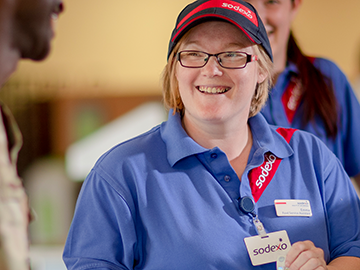Workplace Experience
In October 2025 Sodexo Ireland MD David Fox shared his insights with InBUSINESS Magazine.

In October 2025 Sodexo Ireland MD David Fox shared his insights with InBUSINESS Magazine.

Tips and recipes for a tasty, hassle-free Christmas menu

Natasha's Law: Understanding food allergy labelling changes

Why new workplace technology will unlock new ways of working

Elastic Offices: Why flexible workplaces are the present and the future

Getting back to business: Is your workplace health and safety fit?

Improving employee engagement in a hybrid-working model

How to lead an inspiring return to the office

How to improve company culture, one meal at a time
